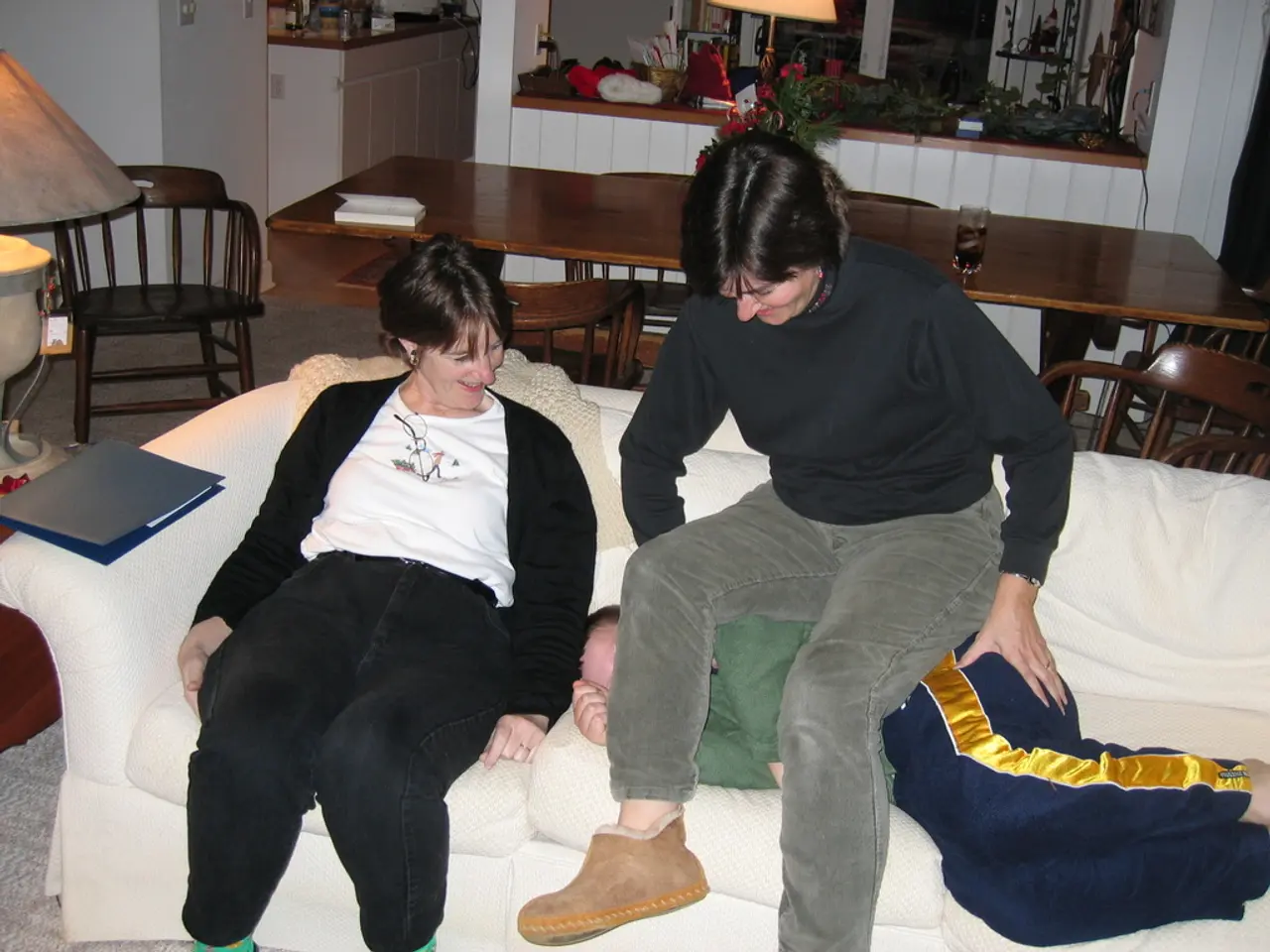Exploration of Laughter During Sleep: Implications and Normalcy Examination
In the world of sleep, an unusual phenomenon known as sleep laughing has been a topic of interest for many. While it's generally considered harmless, understanding its causes can provide valuable insights into our sleep patterns and overall health.
Sleep laughing is often linked to laughing at a dream during REM sleep, the deepest stage of sleep and the only time people dream. This laughter is typically a natural response to something in a dream, much like laughter in our waking lives. However, in some cases, sleep laughing might be a sign of an underlying condition.
One such condition is Hypothalamic Hamartoma (HH), a congenital disorder that can cause gelastic seizures, characterized by uncontrolled laughter or giggling. The average age of onset for HH is around 10 months, and it's more commonly found in children than adults.
Another condition to consider is REM Behavior Disorder (RBD), a rare sleep disorder where people do not experience muscle atonia during REM sleep and can act out their dreams with physical movements. This can potentially include behaviors that resemble laughter. RBD tends to affect older males, with the average age of onset being around 60 years.
While sleep laughing isn't a specific neurological condition, it can be associated with or influenced by several neurological conditions that involve altered states of consciousness, particularly those related to sleep-wake transitions.
For instance, Narcolepsy with Cataplexy, a condition characterized by a sudden loss of muscle tone often triggered by strong emotions like laughter, can be a possible cause. Other conditions include Sleep Paralysis and Hallucinations, where a person is conscious but unable to move, and hallucinations can include a range of experiences, possibly including sounds or visions that might be interpreted as laughter.
It's important to note that while these conditions are rare, they can significantly impact a person's quality of life. For those experiencing persistent sleep laughing or other unusual sleep behaviors, seeking medical advice is recommended.
In the case of babies, if they have several uncontrollable bouts of laughter throughout the day accompanied by other unusual behaviors, caregivers should consult a doctor. Similarly, for those with RBD, making the bedroom a safer environment is recommended, involving moving tables, clocks, and lamps away from the side of the bed to prevent injury during dream-enacted movements.
While the majority of people experience sleep laughing in the second half of the night and it may wake them up, it's not uncommon for this phenomenon to occur more frequently in certain groups. For instance, one study found that 33-44% of middle school children had laughed in their sleep at least once in the previous 6 months. Similarly, a nonclinical sample of undergraduate students reported being aware of at least one hypnogely event per year, with 73% of the sample experiencing such events.
In conclusion, sleep laughing is a fascinating aspect of human sleep, with potential connections to various neurological conditions. While it's generally harmless, understanding its possible causes can help identify underlying health issues and promote better sleep health for all.
- Sleep laughing might be a sign of Hypothalamic Hamartoma (HH), a congenital disorder that causes uncontrolled laughter or giggling, particularly in children.
- REM Behavior Disorder (RBD), a rare sleep disorder where people act out their dreams with physical movements, might also be associated with sleep laughing.
- Narcolepsy with Cataplexy, a condition that causes a sudden loss of muscle tone often triggered by strong emotions like laughter, can be a possible cause of sleep laughing.
- Sleep Paralysis and Hallucinations, where a person is conscious but unable to move and can have hallucinations, might include experiences that resemble laughter.
- In health-and-wellness overall, understanding the causes of sleep laughing can provide valuable insights into our sleep patterns and mental health.
- For mental-health, seeking medical advice is recommended for those experiencing persistent sleep laughing or other unusual sleep behaviors.
- In some cases, sleep laughing can be linked to certain neurological conditions that involve altered states of consciousness, particularly those related to sleep-wake transitions.
- A predictive science approach could further help understand the link between sleep laughing and neurological conditions for better sleep health-and-wellness.
- As for breast cancer prevention, maintaining good sleep hygiene and addressing issues like sleep laughing could potentially reduce the risk factors.
- Considering that migraines can impact sleep quality, addressing sleep laughing might help lessen the symptoms of migraines in people affected by both conditions.




